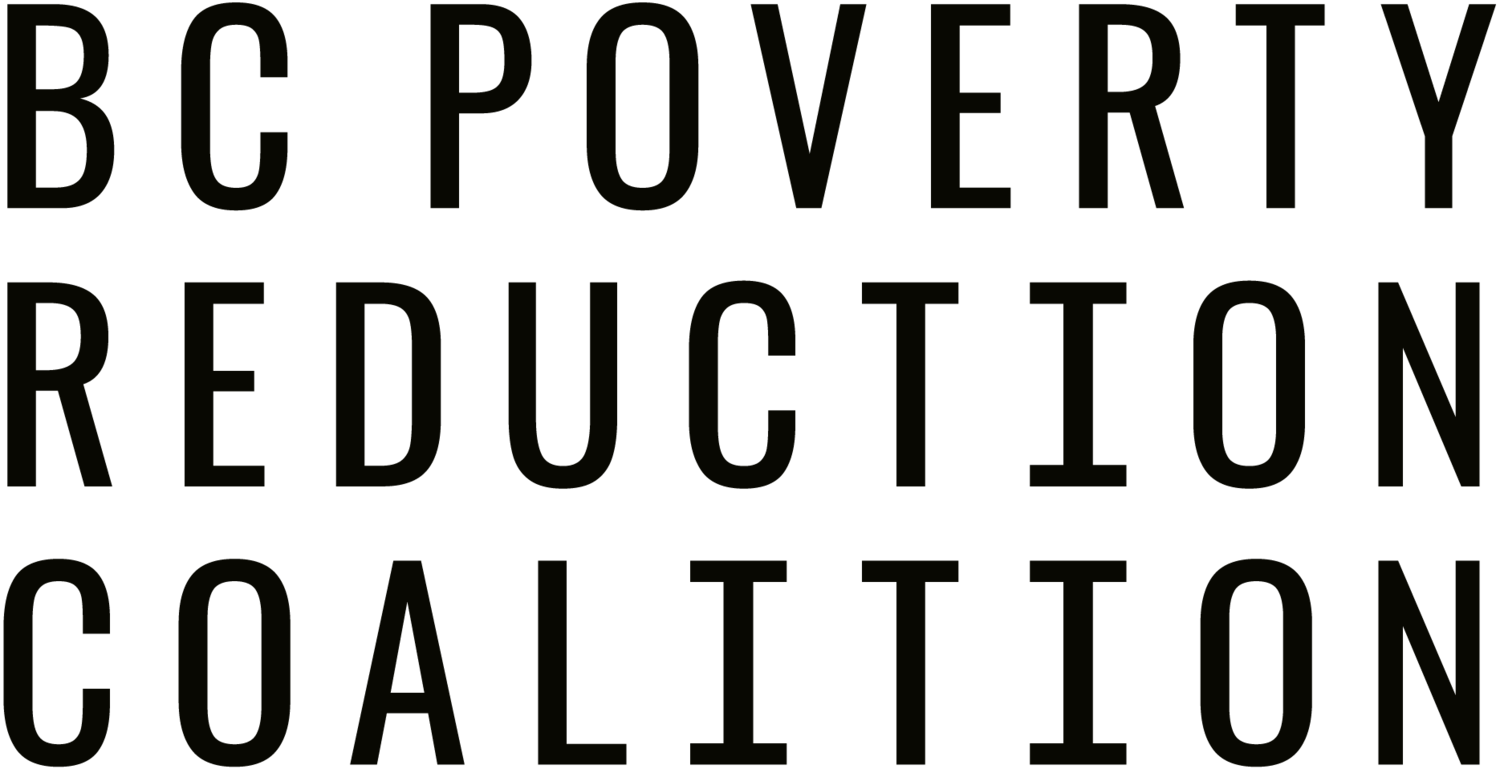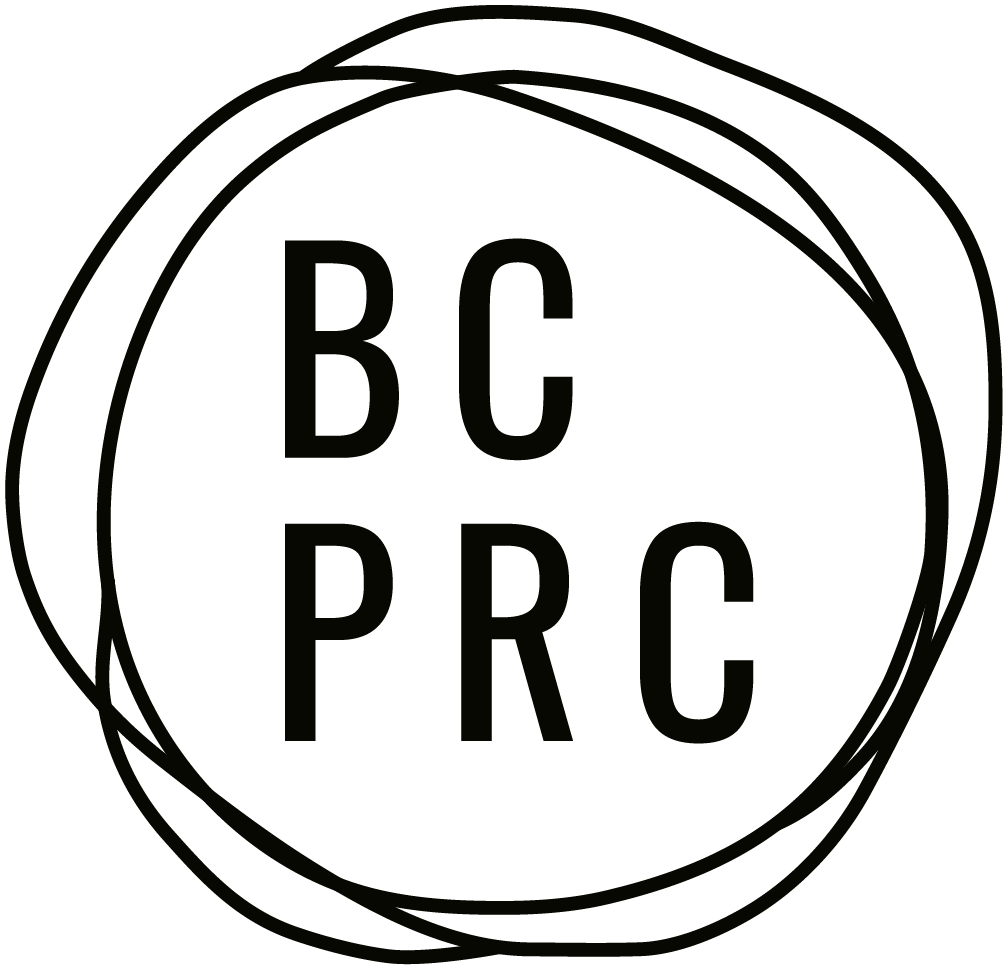The BCPRC Basis of Unity and values statement was developed at a workshop in June 2019 and refined between June to November 2019. The Basis of Unity lays out a powerful vision for how the Coalition accomplishes its work, in solidarity and collaboration with each other as Coalition members, with staff, and all external stakeholders and allies. The following lays out how we strive to show up in all our work, individually as staff and members, collectively as a Coalition, and externally as a united front.
Our Values
In Everything We Do…
We are inclusive. We centre the voices of those pushed to the margins. We keep asking ourselves: who is missing? Who is not being heard? Who has not been empowered? Who has been muted? We engage in deep and active listening. We eliminate barriers to full and meaningful participation for all. We strive for a balance of local and regional representation.
We are open. We engage in this work with an open heart and an open mind. We listen and learn, especially from those with different opinions to our own. We are open to change and build in self-reflection to be aware of norms and values rooted within the organization.
We have courage. We are resolved to make positive change and continue with an agreed-upon course of action despite challenges. We strive to develop a ‘brave space:’ a culture of open feedback based on calling in not calling out.
We recognize every person’s inherent dignity, and treat them with respect, trust and compassion. We have the courage to find unity and the courage to acknowledge when we don’t. We aim to find ways to continue working effectively together. We strive to take risks and learn from failure. We are hard on issues but soft on people.
Core Ideas We Believe
We believe…
Poverty is not a choice. No-one deserves to be poor. There are multiple systems of oppression that cause someone to experience poverty and these systemic issues impact different groups in different ways. Poverty has nothing to do with bad choices.
Every person has a right to live with dignity. We believe in the humanity of every person and the diversity of gifts that people bring.
The eradication of poverty lifts us all. Our health and the health of our communities is improved when we tackle the root causes of poverty: we are all better off when we are all better off.
Poverty is a violation of human rights. There is a moral duty to eradicate poverty and a legal obligation under international human rights law. A human rights approach to poverty reduction is based on a fundamental respect for human dignity as opposed to a charitable approach. A human rights approach is grounded in the experiences and engagement of low-income people and communities. Housing, food, income, and supports are basic human rights.
To eradicate poverty, we must actively tackle colonization, oppression and systems of genocide. We acknowledge the historical trauma and losses of indigenous peoples. We acknowledge the loss of traditional rights, cultural practices, food harvesting, and economic and land exclusion and marginalization that has brought Indigenous people to points of despair, homelessness and extreme poverty. To address poverty, we all have a responsibility to tackle the roots of colonization, white supremacy, ableism, and cis-hetero normativity.
Poverty and inequity are political choices and we can make better choices. Poverty is not inevitable. The system is perfectly designed for the outcomes we are getting but we can change the system. Poverty and inequity are caused by political choices. The political choices that are now embedded in our society are human-created systems of power including colonization, capitalism, racism, ableism and cis-hetero-normativity. Good policies and political choices can lead to redistribution, equitable access to resources and the eradication of poverty.
Behind government action is societal consent. Government responds to public pressure when it gets loud enough. If we build a groundswell of public opinion change will happen.
Together we are strong, together we can make change. Solidarity builds the power we need to make meaningful change. Community organizing can work to build solidarity through community-led action where people in poverty create and lead the change they want to see, in solidarity with other communities. People in poverty are strong and resilient in the face of marginalization and can bring that strength to the movement.
The Difference We Want to Make
When we are successful…
Every person in BC can meet their needs for health and well-being and is thriving. Every person has equitable access to universal basic services to meet their needs for health and well-being. For indigenous people and communities, this must include reconnection and sovereignty over traditional land and resources. There is strong political investment in this social foundation to ensure that it is always there when we need it.
Every person in BC can exercise self-determination in their life. Every person lives with freedom from fear and freedom from want, and can exercise choice, power and agency on the path to creating the kind of whole and thriving life they want to have.
Every person in BC believes that human rights and the collective good are universal values and shared responsibilities and treats others with respect and dignity. Basic human rights are unconditionally held by the community to create shared responsibility for compassionate, caring communities. The notion of the collective good is reinstated to ensure all people live without stigma in communities that take care of each other. We recognize our own and each other’s inherent humanity and dignity.
How We Will Get There
We practise our beliefs and move towards our goals by...
Centring people who are most impacted through leadership. We prioritize people who have been pushed to the margins and invest in building their capacity. We do because inclusion without capacity building can maintain power structures. We show up in solidarity with people in poverty. We strive to be driven by community and accountable to those marginalized by systems of power. Our work is defined by the ethics of “nothing about us without us.”*
Meeting people where they’re at and moving at the speed of trust. We build capacity in ourselves and others by meeting people where they’re at and building on existing abilities, knowledge and perspectives. This approach is strengths-based and founded on acceptance and non-judgement. Community organizing takes time and it is worth it – we believe in the hard work of building community power through deep relationships.
Prioritizing decolonization. We acknowledge the historical and present day practices of colonization and ongoing genocide, and stand in solidarity with Indigenous people and communities in the assertion of Indigenous peoples’ rights, cultural practices, land defence and food harvesting. We centre Indigenous people, Nations and issues impacting them through investing the Coalition’s organizational power and privilege in support and recognizing that Indigenous issues are the foundation of our work. We strive to redistribute power in all that we do by continually fostering awareness of power structures and in/exclusion. We engage people in power in unpacking privilege explicitly. We commit to learning and centring Indigenous ways of being, doing and knowing, and turning to Indigenous laws and protocols to guide the work where appropriate. As a starting point in this work, we recognize the interconnected relationship we have to all people and land and strive to embody All My Relations (Indigenous law), which “is an encouragement for us to accept the responsibilities we have within the universal family by living our lives in a harmonious and moral manner.”**
Going upstream and making structural change: Rights not Rescue. We identify the underlying causes that create poverty and take action to recreate systems to address those causes. Strong government policy has a greater beneficial impact than civil society. Charity at the downstream level meets short-term needs only and can entrench existing power structures. Therefor, we advocate moving from charity to justice. We engage in an ongoing power analysis and focus on systems-level change. We strive to create policies that concretely and positively impact the lives of people pushed to the margins and structures that resist exploitation and abuse.
Investing in and using our collective power. We are all in this together and strive to engage in deep and durable solidarity based on a strong foundation of trust and collaboration. True collective action creates systemic change. We recognize and act on the importance of each others’ struggles and invest in each other’s success: success for one is success for all. We will break down silos and move beyond our own interests, agenda, ego and authority to work together effectively. We show up and are fully engaged – we all have a responsibility to participate in this critical work and we will bring our best selves, our insights and the commitment of our group to advance the work we do together.
Actively and meaningfully including and respecting a diversity of experiences, opinions and approaches. We commit to accessibility in all forms, including but not limited to ability, language and literacy, geography, and access and comfort with technology. We respect diverse tactics from direct action to government relations. We use a collective voice while honouring diversity – we do our best work when we practice a philosophy of acknowledging diverse perspectives and constructive conflict internally. Once a position has been reached, we speak with a unified voice in support of our common purpose.
Working with a shared, clear vision, goals and strategy. We work strategically with a guiding vision and concise short-term, medium-term and long-term goals. Our goals are communicated clearly so that our members can bring them to life in their work and the collective work of the Coalition. The process to reach these outcomes must be guided by all the previous principles.
* The term “Nothing About Us Without Us” is used, and was popularized, by disability advocates. James Charlton, a disability advocate from the U.S., brought it into the North American mainstream after hearing it from Michael Masutha and William Rowland, two leaders of Disabled People South Africa, who heard it at an Eastern European disability conference. It is predominantly used by the disability community but often other advocates use it; when used for non-disability work, it is best to acknowledge that the phrase was popularized, and is mainly used, by disability rights advocate.” We thank Heather McCain, Citizens for Accessible Neighbourhoods, for foregrounding this for us.
**Thomas King, All My Relations






